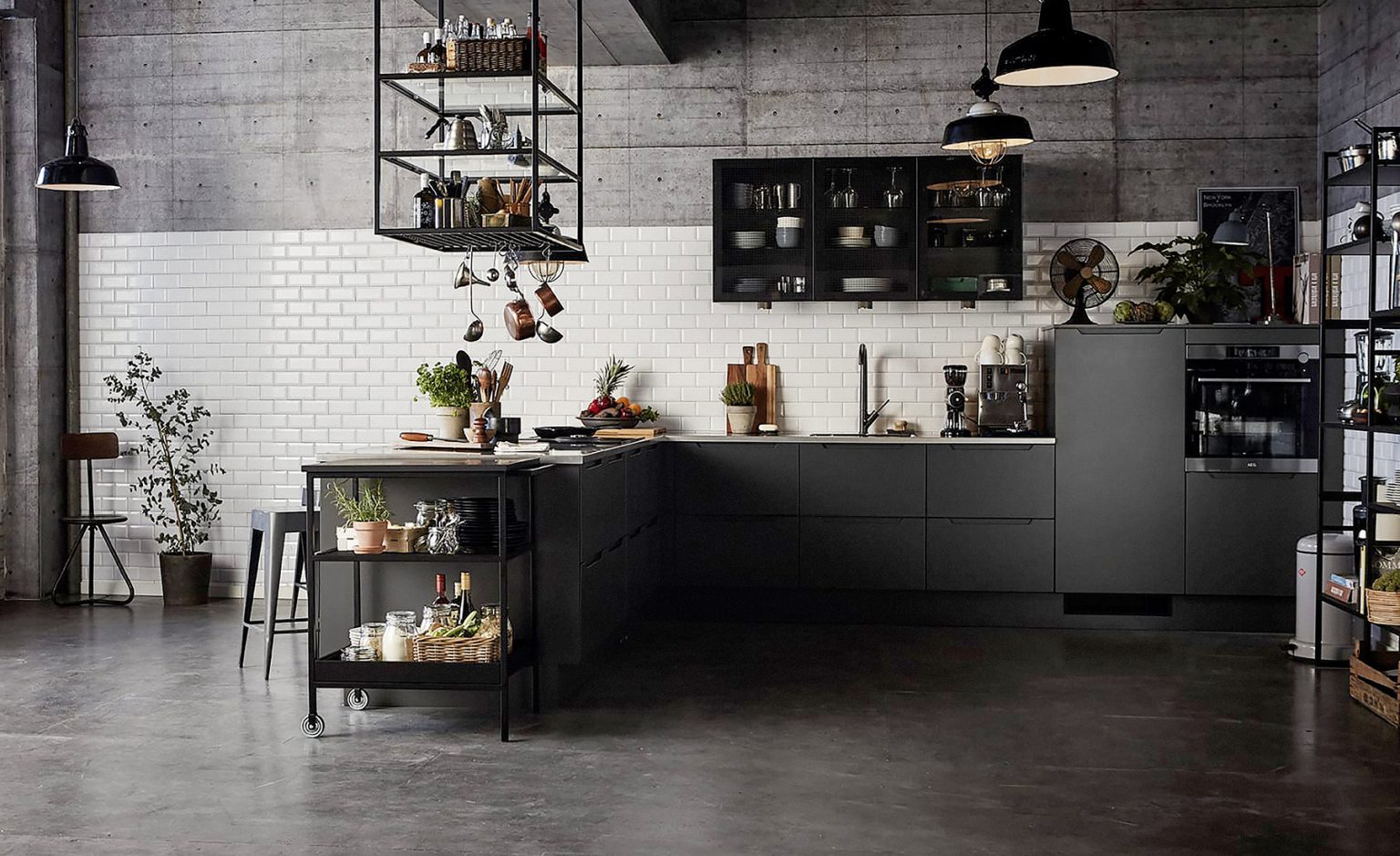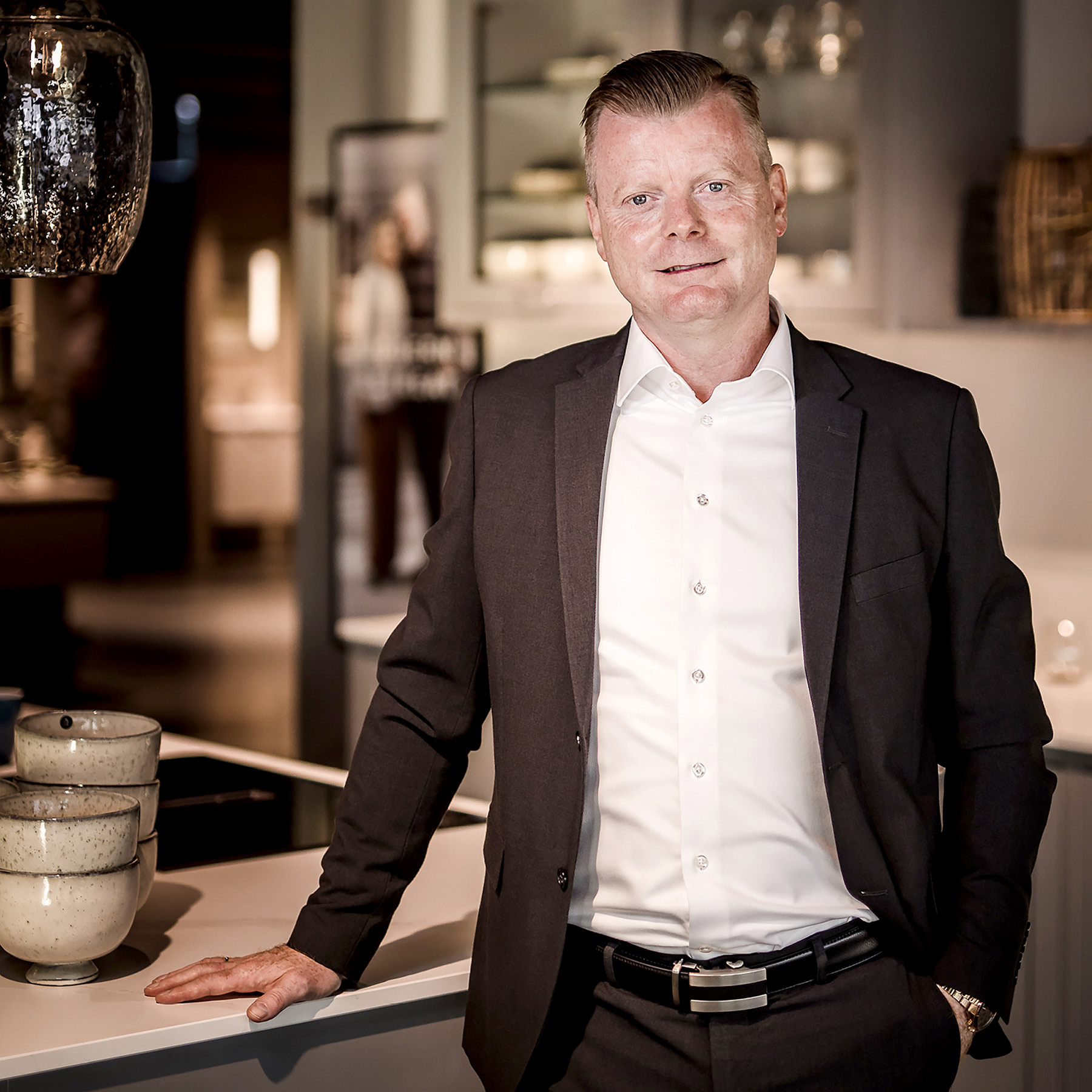Cooking up a Revolution: Jesper Gylling Olsen
Danish kitchen manufacturer HTH Køkkener is turning up the heat on its rivals by executing an expansion plan in the Nobia strategy, says Director of International Brands Jesper Gylling Olsen.
Danish manufacturing and retail giant HTH Køkkener’s three factories produce an astonishing 75,000 kitchens every year – or more than 200 every single day – a number that’s still tracking upward.

It makes it by far the country’s leading supplier with around 100 stores, many run by franchisees, and a workforce in Denmark alone of over 1,200.

In fact, the company’s rapid expansion over the past few years has made it one of Northern Europe’s biggest kitchen and bathroom businesses, with monobrand stores opening up in Sweden, Norway, Finland, Iceland, Germany and Denmark itself. It even boasts customers in the snow-swept towns along the coast of Greenland and remote communities in the Faroe Islands.

In the past year alone, we’ve opened four HTH stores in Germany, including a flagship store in Hamburg.
Since being founded by brothers Hans Henning and Tonny Haahr in 1966, its fitters have installed more kitchens than any other Danish brand. These days, it’s owned by Swedish group Nobia, Europe’s largest kitchen manufacturer with an annual income topping US$1 billion.
HTH’s recent growth is down to a conversation its Director of International Brands, Jesper Gylling Olsen, had with his predecessor four-to-five years ago when he was first approached about the role. The company was already successful, but Olsen could see there was still plenty of untapped potential.
Ushering in a new era
"When he first asked me about joining HTH, the first question I asked him was whether he wanted HTH to devise new concepts and further explore additional territories into which the brand could be launched," Olsen tells The CEO Magazine from his Aarhus headquarters.
"I could see it would be the start of a journey that would usher in a new era and put us firmly at the forefront of the consumers’ minds in every market where we compete."
The company liked Olsen’s vision so much that it fast-tracked his appointment, meaning his first day in the office was less than four weeks after that initial chat.
He didn’t waste any time in laying the groundwork for executing the strategy for rapid growth.
"In the past year alone, we’ve opened four HTH stores in Germany, including a flagship store in Hamburg."
HTH’s retail presence in Sweden and Norway is also advancing, and HTH’s plans to launch the full rigid and flatpack range into the Nordics are progressing by the week. To cope with the expected surge in demand, Nobia is building new factory in Jönköping in Sweden.
Olsen may have only joined four years ago, but that isn’t the full extent of his experience with the company.
"Actually, my history with HTH started when I was a young lad back in 1995 at its flagship store in Copenhagen," he remembers. "I was learning to be a kitchen designer and worked as an account manager in different departments for over four years. And what a great place it was to understand the business!"
A unique offering
Olsen then spent 20 years working his way up through a number of corporate sectors, including health care, before a glorious return to HTH in 2019 as Vice President Director for HTH Køkkener. A year-and-a-half later, he was promoted to his current role.
Since then, he’s invested heavily in offering customers something that no other furniture manufacturer can do – a choice between flatpack and rigid kitchens and bathrooms.
"Customers can literally call the store nearest to them and, three hours later, go in and pick up their kitchen and fit it themselves if they want to, or one of our professionals will do it for them," he explains. "Flatpacks are more affordable and quicker to supply. Self-installation also opens up the tradesperson market to us."
Customers can literally call the store nearest to them and, three hours later, go in and pick up their kitchen and fit it themselves.
The company also works with high-quality suppliers for items it doesn’t manufacture itself. KA Interiør, for example, is famous for its sliding door cabinets, which are an integral part of many HTH kitchens.
You’ll find them in the kitchens on sale at the HTH store in the fishing town of Hoyvik in the Faroe Islands. When you’re on a small island in the middle of the North Atlantic, halfway between Norway and Iceland, you need a kitchen you can rely on. Perhaps that’s why the locals trust HTH not to let them down.
A Careful Approach
The past four years may have seen a swathe of new store openings, but that doesn’t mean anything is being rushed. The incredible pace at which HTH is evolving belies a meticulously curated approach that ensures new premises are only greenlit after a comprehensive set of procedures are followed.
"Every commercial aspect is considered, including local demographics and whether the location represents what we call a ‘white space’ where there’s sufficient scope to grow the existing market. We have to be certain that each store will become profitable within a year," Olsen says.